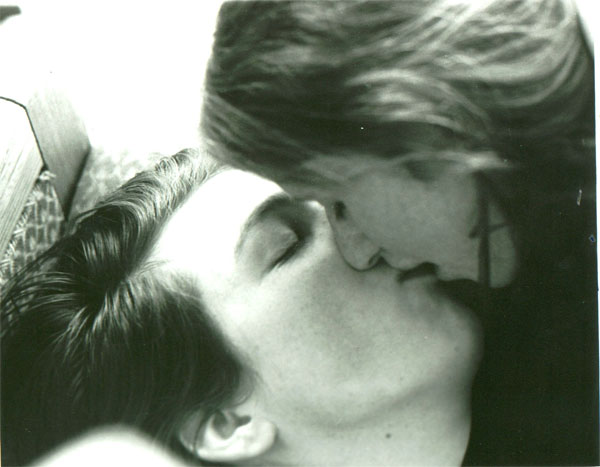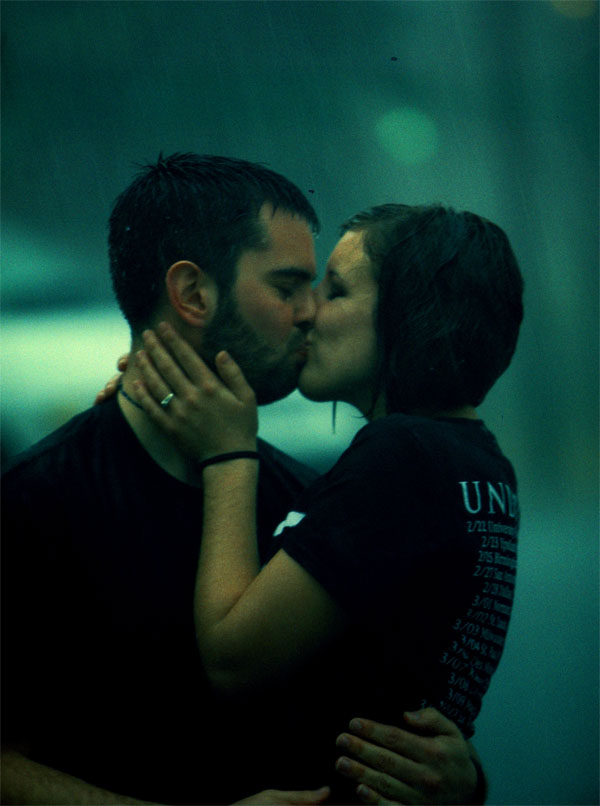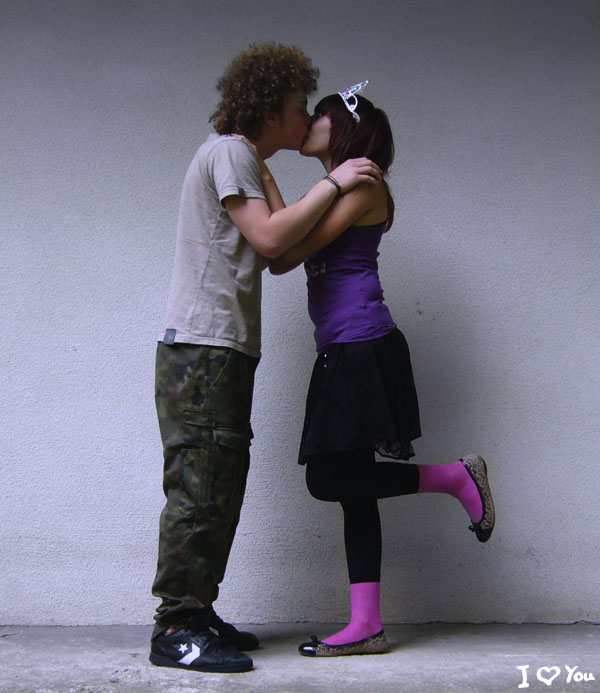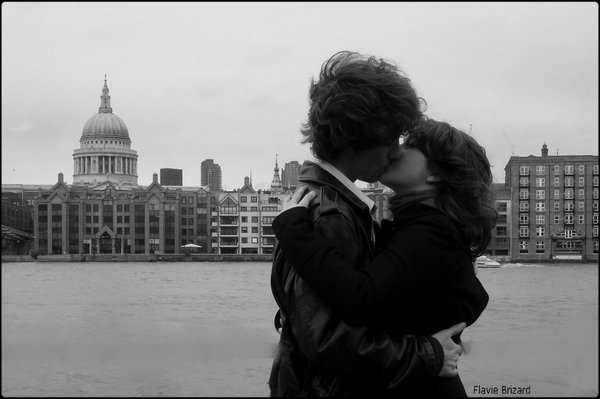
As a parody of democracy, the scene had a certain dramatic charm. Until they were ordered into silence, hundreds of colorfully dressed spectators in the galleries of the Philippine National Assembly cheered and booed passionately as politicians on the turquoise-carpeted floor below walked through their parts. One at a time, brown envelopes containing vote totals from each of the country's 147 voting centers were presented to the legislators for inspection. Tallies were read aloud, and results posted on green tote boards that were lined up before the 200 mahogany desks of the Assembly. Charges flew that some envelopes were improperly sealed, that entire towns had been eliminated from some of the tallying documents. Jeers and accusations rocketed back and forth, and recording the objections to all the voting certificates took hours.
Inexorably, the charade moved the Philippines closer to a new turning point in a potentially explosive national drama. At week's end the National Assembly, dominated by members of President Ferdinand Marcos' ruling New Society Movement, produced its tally after angry opposition members walked out of the legislative hall to protest government railroad tactics. The rump gathering declared that Marcos, 68, had defeated his presidential rival, Corazon ("Cory") Aquino, 53, by 10,807,179 votes to 9,491,716.
Thus, in a final travesty of parliamentary procedure, the Assembly formally declared that Marcos had been re-elected President, in an election whose outcome had been shaped by vote buying, intimidation, outright fraud and bloodshed. The legislative body also proclaimed the election of Marcos' running mate, Arturo Tolentino, 75, ending weeks of speculation that the autocrat might find a way to include Aquino's vice-presidential running mate, Salvador Laurel, 57, in his newly refurbished government.
As the counting proceeded in the cool confines of the Assembly building, each vote recorded for Marcos added anger and outrage to the tension building across the far-flung archipelago. Tentatively but with increasing signs of determination, Aquino supporters were starting to take their frustrations into the streets. Wav- ing clenched fists and chanting "Fight! Fight!," thousands of Filipinos marched in a 13-mile procession through the capital. They escorted the flag-draped coffin of Evelio Javier, 43, a regional Aquino campaign chairman who had been brutally gunned down days earlier in the province of Antique. Though far smaller in scale, the Javier funeral demonstration reminded many Filipinos of the huge outpourings of grief that followed the 1983 assassination of Aquino's husband Benigno Aquino Jr.
Meanwhile, the 104-member Catholic Bishops' Conference of the Philippines added its powerful voice to the clamor of those who claimed that Marcos had stolen the election. After a two-day meeting, the clerics sharply attacked Marcos by asserting that "a government that assumes or maintains power through fraudulent means has no moral basis." To those who agreed with them, the bishops issued a call for a "nonviolent struggle for justice."
Watching closely was the slight, determined figure of Corazon Aquino. The quiet widow who had turned into candidate and crusader, who had ignited a popular passion for change during her 57-day election campaign, continued to insist last week that she rather than Marcos was the rightful President of the Philippines. Deliberately ignoring the National Assembly hoopla, Aquino went on the personal offensive. She staged a giant rally in Manila's Rizal Park on Sunday to protest Marcos' alleged election fraud. That event was the kickoff of a protracted "People's Victory" campaign of nonviolent rallies and boycotts in coming weeks around the country.
The culmination of the Victory plan would be a nationwide general strike, accompanied by other acts of civil disobedience. Aquino's goal was to make Marcos relinquish the power he has wielded from the presidential Malacanang Palace since 1966. Said she: "Let me appeal to all friends of democracy and supporters of freedom abroad. Stand tall by these principles that you and I hold dear."
Slowly but steadily, political events in the Philippines seemed to be rolling to- ward a point of no return. Where the pro- cess might lead was unforseeable. Once again the wily, ailing Marcos had seem- ingly entrenched himself by nominally democratic means, a strategy he has used on four occasions since 1972. But this time his victory, and his subsequent authority, seemed more hollow than ever.
Suddenly there was a prospect of dramatic political unrest and repression in the former U.S. colony, which might ultimately pose a threat to the two important U.S. military bases on the islands, Clark Air Base and Subic Bay Naval Base. The growing confrontation promised to redound to the benefit of the increasingly powerful Communist New People's Army, whose insurgency will soon, in the Pentagon's view, pose a real military challenge to the Marcos regime.
Few people had more reason to be concerned at the latest turn of events than President Reagan. Increasingly, the White House found itself on the spot in what Richard Holbrooke, a former Assistant Secretary of State for East Asia and Pacific Affairs, called "the most serious foreign policy crisis this Administration has faced."
As part of a U.S. bid to solve the crisis, Philip Habib, 65, a specially appointed U.S. envoy, late last week flew at President Reagan's behest to Manila. Habib's mission: to find some way of reconciling the opposing Aquino and Marcos political camps. On arrival, the diplomat immediately closeted himself for the weekend with members of the U.S. embassy staff.
Even as Habib winged on his way, the Administration was preparing to issue its statement in reaction to Marcos' proclaimed re-election. Among other things, it declared that the election had been "marred by widespread fraud and violence perpetrated by the ruling party." So extreme was the misdoing, the statement continued, that the election's credibility was "called into question, both within the Philippines and in the U.S." The White House then called on "all responsible Filipinos" to seek peaceful ways to achieve "stability in their society" and to avoid violence.
The Saturday statement, which Administration aides touted as a "major blow to Marcos," was the White House's way of extricating itself from a controversy over its earlier reaction to the questionable Philippine election. As official U.S. observers brought back eyewitness reports of widespread election cheating by Marcos supporters, President Reagan's response had been less outraged than many members of his own Administration would have liked --and than many Americans, treated to an unparalleled and intimate view of a foreign election, expected from their President. At a Tuesday news conference, Reagan had ventured the possibility that fraud "was occurring on both sides."
Reagan's words led to a flurry of congressional responses that might . ultimately end in a bid to cut off all U.S. aid to the Marcos regime. Said Democratic Representative Steven Solarz of Brooklyn, chairman of the House subcommittee on Asian and Pacific Affairs: "How we handle aid will be the test of how credibly we have disassociated ourselves from a discredited dictator."
Perhaps even more important to the Reagan Administration than the congressional reaction was a sudden freezing of relations between U.S. diplomats and the increasingly assertive members of the anti-Marcos opposition. Aquino charged the White House with tilting in favor of election theft, and anti-American demonstrations took place in front of the U.S. embassy in Manila. For his part, Marcos seized on Reagan's ill-considered remarks to try to bolster his own position.
The Reagan response raised a broader question of what exactly Washington could do to affect the political course in the Philippines, both to protect important U.S. interests and to further Filipino democracy. To many Administration critics, the answer seemed to lie in some form of anti-Marcos sanctions, but at the White House the problem was seen as more complex than that. Said an Administration official: "We're trying to stay as neutral as possible, gently pushing Marcos into making accommodations with the other side."
Neutrality had been the banner that the Administration carried into the Feb. 7 elections. Washington's oft-stated preference during the Philippine campaign was only for a fair and credible balloting process. The unprecedented foreign-press coverage meant that the campaign was scrutinized almost as if it were a U.S. election. Marcos and Aquino appeared repeatedly on interview shows; U.S. television networks sent anchors to Manila to broadcast the election finale.
What Americans saw on their television sets came as a shock. U.S. viewers were treated to a vivid documentation of Marcos supporters buying votes with money and rice, of poll watchers from the opposition who were beaten and shot after they tried to protect ballot boxes, of voting rolls that failed to include countless Aquino supporters but listed improbable numbers of pro- government voters.
The images of skulduggery at the polls were enhanced by the vast divergence in voting tallies that soon emerged between the official, Marcos-dominated Commission on Elections (comelec) and the volunteer watchdog organization known as the National Citizens Movement for Free Elections (NAMFREL). At times COMELEC had Marcos leading by as many as 600,000 votes, while NAMFREL showed Aquino ahead by about the same number.
The sheer range and flagrancy of the cheating charged against the Marcos camp were impossible to ignore. Nonetheless, the Reagan Administration held back its comments pending the return from Manila of Senate Foreign Relations Committee Chairman Richard Lugar, who, along with 19 other delegates appointed by the President, monitored the voting. In interviews on the scene, almost all the observers professed themselves shocked by what they had seen. But even as the Lugar delegation arrived in Washington, the Administration was speaking in a variety of increasingly dissonant voices about how the election results should be viewed and how the U.S. should respond to them.
Privately, many lower- and middle-level U.S. diplomats were outraged by what they considered gross abuses of the democratic process by Marcos supporters. But on Monday, Deputy State Department Spokesman Charles Redman tried to put a conciliatory gloss on the tumultuous balloting process. Whoever was eventually declared the winner, he said, the U.S. hoped that "the two sides can get together to avoid violence." President Reagan struck almost the same note that day in a White House meeting with a group of regional U.S. newspaper editors. While noting that he was "concerned" about reports of election fraud, Reagan declared that the Administration wanted "to help in any way we can . . . so that the two parties can come together."
Those sentiments took on a more assertive tone at a White House press briefing. Spokesman Larry Speakes stated flatly that when the hotly disputed election results were "complete," both sides should "work to form a viable government without violence." A senior White House official was even blunter. Said he: "The main thrust of our statement is not to have demonstrations in the streets just because you did not like the election. A strong government is essential to maintain a peaceful resolution of the problems that face the Filipinos."
The White House remarks could only be interpreted as a warning for Challenger Aquino. The deeply religious mother of five had warned throughout the election campaign that street protests were likely if Marcos cheated during the balloting. But the White House remarks also reflected a more conservative view of the still simmering Philippine election crisis than that held by many officials at the State Department. Simply stated, the dilemma as seen on Pennsylvania Avenue was how to strike a balance between condemnation of Marcos' activities and support for the stability of an important Pacific ally. As a senior White House official later put it, "We're in a no-win situation at this point. If we accent the fraud, it gives Marcos an excuse to throw out the election. If we side with Aquino, it's a signal to her to take to the streets. We're opting for stability, that's the key word."
Whether the White House chose the correct way to achieve that objective is another question. If the Administration stressed stability above all else, it risked giving the impression that it was siding with Marcos. That was very unlikely to make him change his ways, and could conceivably give a helping hand to the country's radical left.
But behind the choice of language was an assessment that for all the uproar following the voting, President Marcos still had the upper hand, at least in the short term. There were no signs last week, for example, that the country's 230,000-member armed forces were about to disintegrate in Marcos' hands. Said a White House official: "It's obvious that Marcos has control."
Above all, White House concern continued to focus on the two U.S. military bases, Clark and Subic Bay. Some U.S. officials feared that if Aquino ever took power, she would prove more susceptible to leftist pressure to remove the bases from Philippine territory. Others were concerned that an Aquino government would be unequipped to cope with the growing Philippine insurgency. Many simply did not believe that Aquino could ever wrest power from Marcos with anything less than armed force.
At the same time, the Philippine President's grave problems with systemic lupus erythematosus, a disease that frequently attacks the kidneys, make it likely that there will be a change in power in the country before too long. Said a senior Administration official: "Marcos isn't going to last forever. We're trying to help hold things together over there until some of the personal obstacles to change are gone."
That line of argument came most strongly last week from National Security Adviser John Poindexter and his staff expert on Asian affairs, Gaston Sigur. Among others who reportedly felt the same way was White House Chief of Staff Donald Regan, an ex-Marine, who said on This Week with David Brinkley last ; month that the U.S. would condemn any electoral fraud, but added that "if it's a duly elected government, so certified, you'd have to do business with it."
There was a competitive edge to the White House analysis. Some staffers apparently felt that the State Department, and in particular U.S. Ambassador to the Philippines Stephen Bosworth, had prejudged the Philippine election. Said a White House official: "They in effect told us that unless Aquino won, that would be proof positive of widespread vote fraud. That falls into the realm of prognostication and outside diplomacy."
Finally, there still seemed to be a question in at least some White House minds about Aquino's qualifications for running the country. The Administration had previously said that it could work well with either presidential candidate. Last week, however, one White House official said in exasperation, "How State thinks that Aquino can govern on her own is just beyond us."
State Department staffers were dismayed by the statements that emerged from the Speakes briefing. The diplomats at Foggy Bottom requested a "clarification" of the White House views. But before that request was formally answered, President Reagan held a 40-minute meeting at the White House on Tuesday with the returning Lugar.
The Reagan-Lugar meeting was an ambiguous exercise. Sitting in on the session were Poindexter, Regan, Defense Secretary Caspar Weinberger and Secretary of State George Shultz. Lugar spent much of his energy at the meeting trying to convince the skeptical majority of his Executive Branch audience that they should not give up too soon on support for the unobstructed democratic process in the Philippines. The normally terse Senator spoke movingly of brave souls like an ordinary Filipino housewife who confronted armed thugs in order to defend her ballot. He urged the White House not to resign itself to a Marcos victory too quickly.
Reagan replied with an anecdote of his own. He told of a Marcos election worker who had allegedly pitched a supply of Aquino ballots into a ditch, and he doubted aloud that anyone would try to cheat by doing that. Said the President: "If he was really trying to get away with fraud, you'd think he'd have burned those ballots."
When the President emerged from that session, he mollified some State Department concerns by describing the Philippine elections as "flawed" and "disturbing." He announced the appointment of Special Envoy Habib as a would-be mediator. The choice was shrewd. A tireless career diplomat, Habib is a veteran Asia hand who retired from the Foreign Service in 1983 after serving as the President's special emissary to the Middle East. Habib's new job, said Reagan, would be to advise on how the U.S. can "help the people of the Philippines overcome the grave problems their country faces, and to continue to work for essential reforms."
Less than five hours later, the President stunned Senator Lugar and most of the other election observers with his casual but devastating news-conference remarks. Reagan said Lugar's delegation had briefed him on the "appearance of fraud" during the voting. Then he said the observers had told him that "they didn't have any hard evidence beyond that general appearance." At this point he got in real trouble by adding that it was also possible that fraud "was occurring on both sides."
Reagan's contentious remark was a flub, pure and simple. It was based on intelligence reports from U.S. operatives in the Philippines, who stressed that fraud by Marcos forces was overwhelmingly more pervasive than any by the Aquino opposition. Reagan first made the accusation during a practice question-andanswer session with his staff before the Tuesday-night news conference. The President was corrected. But, says a Reagan aide, "he had it in his mental computer, and it couldn't be erased."
The statement turned out to be a painfully important mistake. Senator Lugar, for one, quickly bridled at the President's observation. Claiming that Reagan "was not well informed," Lugar asserted that the predominance of fraud "was by the government." Later the Senator said he would probably consider curtailment of U.S. aid to the Philippines if the balloting was discredited by an obviously orchestrated Marcos declaration of victory.
Intentionally or not, the President soon discovered that he had knocked down a hornet's nest. Increasing numbers of Congressmen used his remarks as a springboard for issuing their own foreign policy prescriptions for the Philippine mess. Two days after Reagan spoke, for example, Democratic Senator Sam Nunn of Georgia, an influential member of the Armed Services Committee, sent the President a two-page letter demanding "clear statements" that the Marcos regime had committed massive electoral fraud. Nunn asked for a pledge that the White House would refuse to recognize a Marcos election victory. Finally, Nunn wanted the U.S. to terminate all aid to the Philippines if, as he put it, "the will of the voters, as expressed at the ballot box, is not followed."
Another harsh reaction on the Hill came from Congressman Solarz. After Speakes' Monday press briefing, Solarz charged that "they are smoking hashish in the White House. They appear to have lost touch with reality." A number of other Senate and House Democrats vowed to cut U.S. military- and economic-aid appropriations for the Philippines (1986 authorization: $245 million) unless the Administration agreed to something like a rejection of the election results. After the proclamation of Marcos' win, prospects for a friendly reception in Congress for further aid requests looked even dimmer.
Finally, it seemed that the new situation was prompting some influential Congressmen to examine alternative sites for the valuable U.S. military bases in the Philippines. During his Tuesday news conference, President Reagan alluded vaguely to the existence of contingency studies on where to move the sensitive facilities, an extremely difficult and costly proposition. On Thursday, Senate Majority Leader Robert Dole of Kansas took that search a step closer to reality. He announced that he would formally propose legislation this week that would ask the Pentagon to evaluate the cost and feasibility of setting up alternatives to the installations. No one doubted that the cost of such a move would run into the billions.
What virtually everyone in Washington agreed on was that Marcos emerged from the election in a somewhat weakened position. Said a top Pentagon official: "It's an exceptionally unstable situation." The very instability compounded U.S. difficulties in deciding what to do next. Said a White House aide: "There's no magic solution to this situation. Nobody is claiming he has any inspiration on how to solve this."
Indeed, the number of short-term U.S. options for dealing with the Philippine crisis remained embarrassingly small. The decision to send Envoy Habib to the Philippines may have bought the Administration some time--but not much--to think further about the problem. Says a Pentagon official: "The longer it takes to come up with some sort of reasonable policy in the Philippines, the better it is for the Communists."
In that context, many of the more extreme proposals being advocated on Capitol Hill run the risk of proving counterproductive. Sweeping moves to cut off military aid to the Philippines (a modest $55 million this year) seem especially likely to do more harm than good. Morale among the often corrupt and ill-equipped Philippine armed forces is already bad. An aid cutoff might make things worse, although some Philippine military reformists dispute that. Even so, eliminating all American money might prove especially hazardous for armed-forces reformers, who have been chafing at the stagnation of the late Marcos years. Without protective U.S. influence, many of the approximately 1,200 reformers in the 14,500-member Philippine officer corps might be purged.
Selective withholding of funds, however, might have positive effects if properly done. Such calibrated coercion might allow the Administration to demand specific reforms that would allow some degree of reconciliation to take place in the Philippine political cauldron.
There is a great deal to be said for statements like the one the White House made on the weekend. As a senior Senate Foreign Relations Committee aide points out, every U.S. President has enjoyed enormous prestige in the Philippines--more, perhaps, than any Philippine incumbent. Marcos is aware that public U.S. statements deeply affect his legitimacy, and the threat of further broadsides might force him to make political concessions.
But the stark fact of Marcos' stubbornness cannot be overlooked. On the basis of his track record, it is not clear that Marcos would submit to even the toughest U.S. pressures. Indeed, the Philippine President, who has long honed his skills as a ruthless infighter, might lash out independently if he felt he was dangerously cornered. In an explosion of violence, the lives of his opponents might be even more directly at risk.
The limited range of those options underlined the importance of Aquino and her proposed nonviolent campaign. This is a mighty challenge for someone who has spent most of her life in the wings of politics rather than at center stage. Aquino's wrenching entry into an active role in Philippine public life can be dated from Aug. 21, 1983. On that date her husband, Opposition Politician Benigno Aquino Jr., was gunned down while getting off a China Airlines Boeing 767 at Manila International Airport on his return from three years of exile in the U.S. Suddenly his wife was catapulted into the position of a national saint.
Politics, however, had always been in her background, and she was hardly an average homemaker. The daughter of one of the Philippines' patrician political families, she was a helpmate during 28 years of marriage to the country's most prominent opposition figure. As a spouse, Aquino remained largely on the political sidelines, but within eight months of her husband's assassination, she was stumping the Philippine countryside on behalf of opposition candidates for the country's 1984 National Assembly elections. She was prodded into running in the presidential campaign by, among others, Jaime Cardinal Sin, leader of the Roman Catholic Church in the Philippines.
Once committed to the presidential race, Aquino quickly showed a steely determination that belied her reserved, soft-spoken manner. She displayed remarkable stamina. The galvanic response that she elicited from ordinary Filipinos as she flew from town to town during the 57-day campaign came to be known as "people power." Now a battle-hardened political veteran, Aquino intends to harness the same force in her dangerous and quixotic struggle to occupy Malacanang Palace.
Last week she spent much of her time huddling with aides and planning strategy. Aquino and her closest advisers realized very early that they had been outmaneuvered by Marcos in the questionable election balloting. On Tuesday, the day that President Reagan gave his news conference, a group of pro-opposition legislators told top Aquino campaign officials there was no way to stop Marcos from steamrolling to victory in the National Assembly tallies. Reason: he has complete political control in two important areas of the northern island of Luzon plus the central Visayan islands. In all those regions, he would be able to pad voting results with impunity, thus overcoming any Aquino lead at the polls elsewhere.
The Aquino camp was badly shaken on Tuesday when Javier, the campaign director of Antique province, was brutally and publicly murdered by men with alleged ties to a prominent leader of the Marcos forces in the National Assembly (see box). Late last week the bodies of ten more people, all said to be opposition supporters, were reportedly discovered in northerly Quirino province. At least 156 people have been killed in election-related violence since the presidential campaign began.
That grim figure was above average even for the Philippines, where violence is a traditional fellow traveler of politics. In 1961, for example, before Marcos appeared on the presidential scene, 35 people were killed during an election campaign; that is still considered a postwar low. In 1984, during National Assembly elections, more than 100 fatalities were reported.
Aquino last week was watching Washington for important political signals. She was badly stung by President Reagan's offhand reference to opposition fraud during the election. She responded immediately with a press statement that coolly noted the appointment of Envoy Habib but observed that on his last White House assignment before retirement in 1983, Habib had failed to end civil strife in Lebanon. Said Aquino: "I hope neither Mr. Reagan nor Mr. Marcos is expecting to see our beloved country go the same way." Claiming that she had been cheated out of as much as 25% of the national vote, she declared that it would be folly for her supporters to "settle down to a Western-style opposition role."
After Reagan's press-conference remarks, U.S. Ambassador to the Philippines Bosworth arranged a meeting with Aquino to discuss Special Envoy Habib's impending visit. The atmosphere during the session was both awkward and frigid. Bosworth, a highly regarded career diplomat who has worked hard to gain the opposition's confidence, had apparently been taken by surprise by the President's remarks. Says a key Aquino supporter who walked in on the Bosworth-Aquino meeting: "I don't know what the Japanese Ambassador looked like when they were bombing Pearl Harbor, but I imagine he looked like Steve."
Any pessimism that Aquino may have been feeling about the future, however, did not impede her actions. Before the memorial service for Javier, she paid a luncheon call on the country's 104-member Bishops' Conference to lobby for support for her People's Victory campaign and to assure the bishops of her commitment to nonviolence. Shortly afterward she went public with her Victory plans.
A key factor in Aquino's decision to go forward quickly with a civil- disobedience campaign was the fear that her moderate forces would soon be overtaken by pro-Communist groups eager to exploit the popular frustration at Marcos' formal election victory. As she planned her forthcoming rallies, Aquino continued to act forcefully to keep radical leftists from climbing aboard her campaign. One would-be partner: the 1 million-member leftist coalition known as Bayan, whose leadership is widely believed to have links to the Communist New People's Army. Aquino has every reason to be leery of newfound leftist allies. Throughout the campaign, she was repeatedly forced to rebut Marcos' accusations that she was little more than a stalking horse for the Communists.
Aquino's closest supporters are aware that leftist forces are still waiting in the wings. Says an Aquino campaign troubleshooter: "The biggest problem we have is that if Cory does not act, the moderates will be put out of business." On the other hand, he added, "if Cory acts, it will place this country on the brink of revolution."
Aquino's continuing resistance to Marcos' victory is nothing more than a calculated gamble that may yet provoke incalculable upheaval. Says Ramon Mitra, a National Assemblyman and an Aquino adviser: "We don't know whether we will be able to keep control over this. But we thought we would take the risk. We have to send a message to our friends that we are not taking this sitting down."
That stark problem was clearly in the minds of President Reagan's White House advisers when they drafted his weekend statement. It was impossible to deny that, as Reagan noted, the people of the Philippines are "at a major crossroads in their history. There are no easy answers. And in the last analysis, they will have to find the solutions themselves." One way or another, Aquino and Marcos will soon determine that solution.
Find this article at:
Going Into The Street (Monday, February 24, 1986)
































